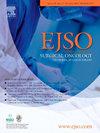Long-term outcome for neoadjuvant versus adjuvant chemotherapy in early breast cancer and the prognostic impact of nodal therapy response: A population-based study
IF 3.5
2区 医学
Q2 ONCOLOGY
引用次数: 0
Abstract
Introduction
Although neoadjuvant systemic treatment for non-metastatic breast cancer has gained ground during the past decade, there is no compelling evidence that it improves overall survival compared to primary tumor resection and adjuvant treatment. At the same time, the approach to responders to neoadjuvant treatment in the axilla is evolving.
Materials and methods
This is a retrospective analysis of a prospectively collected population-based registry. Patients that received neoadjuvant (n = 2126) or adjuvant chemotherapy (n = 4754) for non-metastatic breast cancer during 2007–2020 in the Stockholm-Gotland region, which comprises 25 % of the entire Swedish population, were included. Overall survival of patients treated preoperatively and postoperatively was compared using inverse probability treatment weighting and landmark analysis. The prognostic impact of change between prechemotherapy clinical to postchemotherapy pathologic nodal stage (cN/pN) in women receiving neoadjuvant treatment was investigated.
Results
Median follow-up was 4.93 years. There was no difference in adjusted overall survival between adjuvant (reference) and neoadjuvant treatment in the entire population (HR = 1.38, 95 % CI 0.98–1.93, p = 0.062) or in breast cancer subtypes. Patients converting from positive clinical to negative pathologic nodal stage (cN+/pN0) had improved outcomes compared to cN0/pN0 or patients with pN0 following primary surgery. These patients had a particular disease trajectory, with early peak in risk of death followed by quick and sustained decrease.
Conclusion
There was no difference in survival of patients treated with neoadjuvant versus adjuvant systemic therapy for non-metastatic breast cancer. Patients with cN+/pN0 have excellent prognosis and represent potential candidates for de-escalation of local and systemic treatment.
早期乳腺癌新辅助化疗与辅助化疗的长期结果及淋巴结治疗反应的预后影响:一项基于人群的研究。
虽然在过去的十年中,非转移性乳腺癌的新辅助全身治疗已经取得了进展,但没有令人信服的证据表明,与原发肿瘤切除和辅助治疗相比,新辅助全身治疗能提高总生存率。同时,对腋窝新辅助治疗有反应的方法也在不断发展。材料和方法:这是对前瞻性收集的基于人群的登记进行回顾性分析。在2007-2020年期间,斯德哥尔摩-哥特兰地区(占瑞典总人口的25%)的非转移性乳腺癌患者接受了新辅助化疗(n = 2126)或辅助化疗(n = 4754)。采用逆概率治疗加权和里程碑分析比较术前和术后患者的总生存率。研究接受新辅助治疗的女性化疗前临床与化疗后病理淋巴结分期(cN/pN)变化对预后的影响。结果:中位随访时间为4.93年。在整个人群中(HR = 1.38, 95% CI 0.98-1.93, p = 0.062)或乳腺癌亚型中,辅助治疗(参考)和新辅助治疗的调整总生存率无差异。从临床阳性到病理结期阴性(cN+/pN0)的患者与cN0/pN0或原发性手术后pN0患者相比,预后有所改善。这些患者具有特定的疾病轨迹,死亡风险在早期达到高峰,随后快速持续下降。结论:非转移性乳腺癌患者接受新辅助治疗与辅助全身治疗的生存率无差异。cN+/pN0患者预后良好,是局部和全身治疗降级的潜在候选者。
本文章由计算机程序翻译,如有差异,请以英文原文为准。
求助全文
约1分钟内获得全文
求助全文
来源期刊

Ejso
医学-外科
CiteScore
6.40
自引率
2.60%
发文量
1148
审稿时长
41 days
期刊介绍:
JSO - European Journal of Surgical Oncology ("the Journal of Cancer Surgery") is the Official Journal of the European Society of Surgical Oncology and BASO ~ the Association for Cancer Surgery.
The EJSO aims to advance surgical oncology research and practice through the publication of original research articles, review articles, editorials, debates and correspondence.
 求助内容:
求助内容: 应助结果提醒方式:
应助结果提醒方式:


